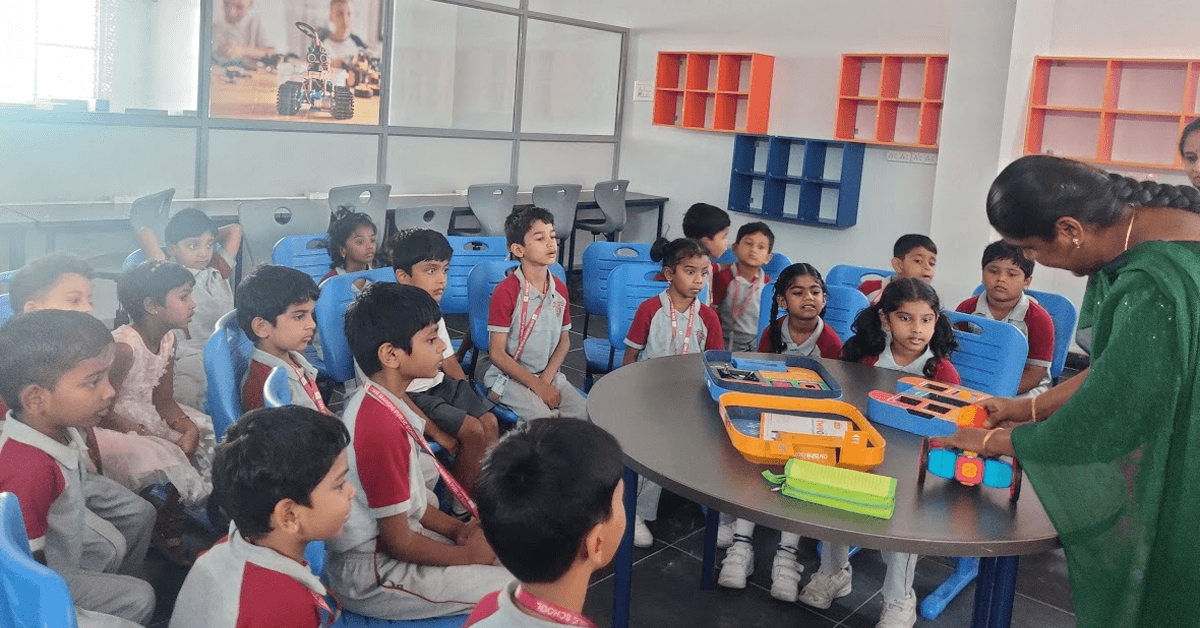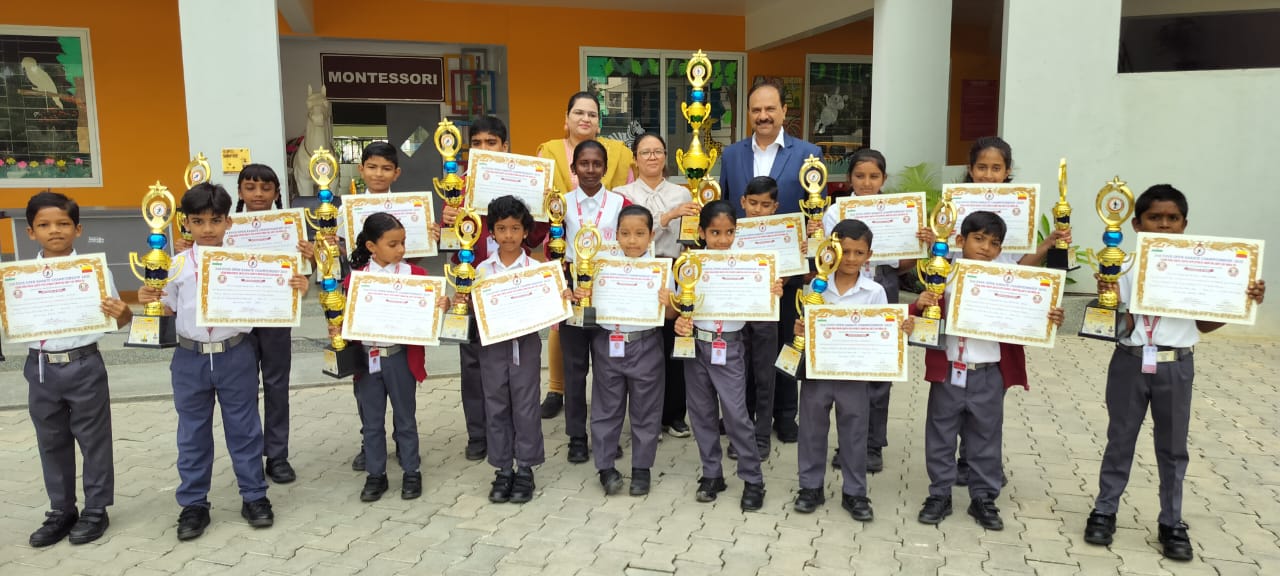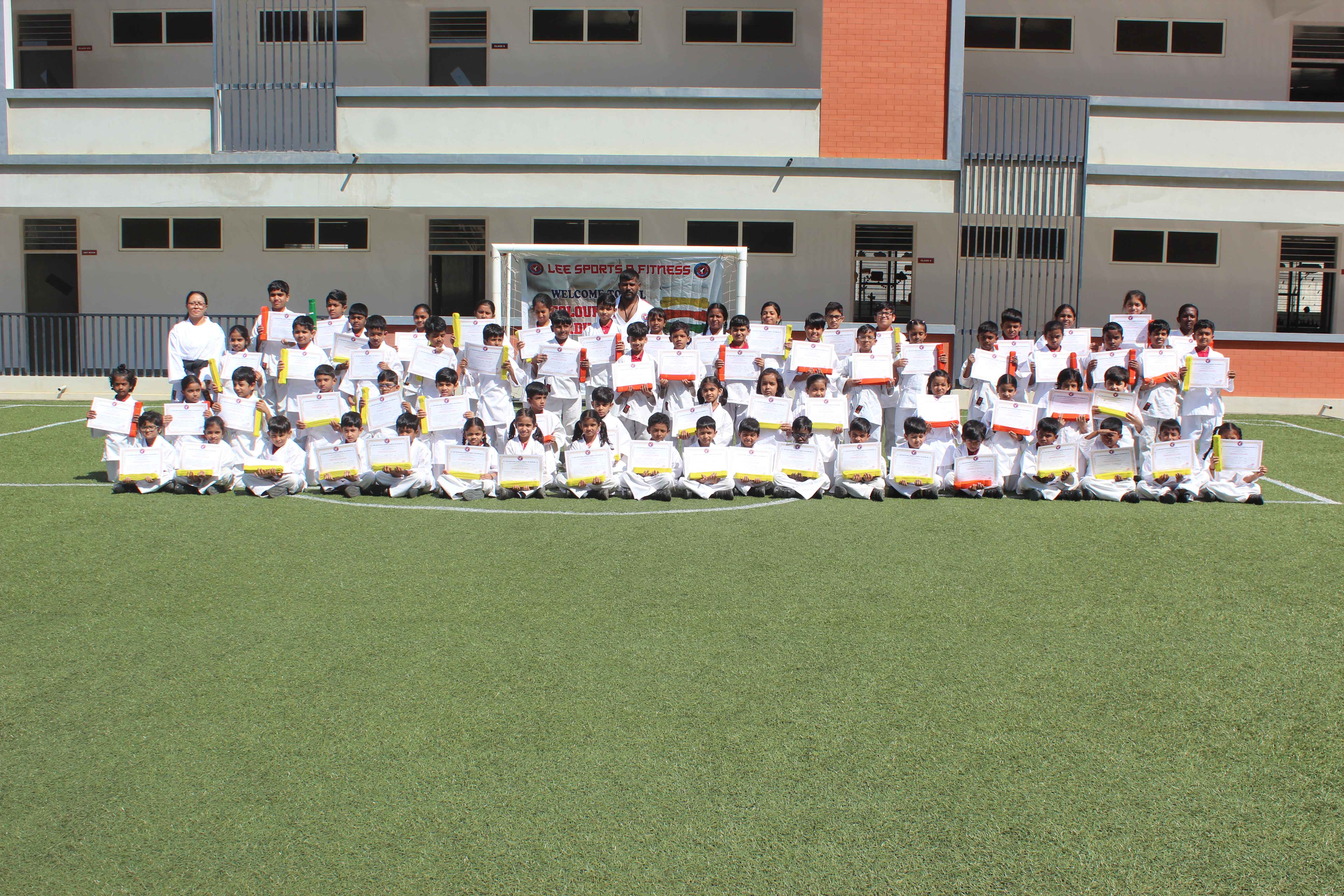Laying the Groundwork
Early education, such as Kindergarten or Montessori learning for toddlers, plays a crucial role in cognitive expansion, motor development, and socio-emotional well-being. Since it lays a strong foundation on which children rely throughout their lifetime, having an intelligent yet holistic approach to building this foundation brick by brick is what some of the best preschools in Bangalore do.
The following articles explore the impacts of early childhood education on children and share some of CMR Gandhi Public Schools‘ approaches and benefits of early childhood curricula that prepare young learners with special and foundational skills for success.
Benefits of Early Education
Children are born with an innate curiosity, which makes them highly receptive to learning. Parents can observe this in children’s ability to grasp languages at a young age with remarkable ease. Preschools, therefore, play an essential part in nurturing and enhancing this cognitive skill by providing a structured environment where children explore, discover, communicate, and make sense of the world around them.
At CMR Gandhi Public School, young ones play outdoors, take short excursions, engage in arts and crafts, games (puzzles, colour sorting, recognising shapes, matching items/pictures), dance and sing, and much more. Through these engaging activities and interactive experiences, our early education programs stimulate cognitive growth, laying a solid foundation for lifelong learning and expansive intellect.
-
Social and Emotional Development
Early childhood education is essential for a child’s holistic development. It provides an opportunity for them to learn social-emotional skills such as empathy, acceptance, and conflict resolution, all while having fun through various playful activities.
Our educators are chosen wisely because they are exceptional storytellers and performers who use their skills to engage and inspire their students. This creates a sense of belongingness or community among children, allowing them to adopt positive responses such as classroom discipline, appreciation towards others and compassion for everyone.
Often, our teachers prioritise open communication by actively listening to our students. Since children learn primarily by observing the behaviour of adults, they usually mirror this behaviour in their interactions with classmates and other people. This approach has resulted in an improvement in the quality of friendships and relationships between parents and children.
-
Language and Communication Skills
Children develop language and communication skills early on in their schooling. Early education programs employ various resources, strategies, and techniques to incorporate the best approaches to promote language skills in youngsters naturally.
Educators understand that children learn language and concepts through assimilation, which involves fitting new ideas into what they already know, and accommodation, which includes changing existing ideas to accommodate entirely new ones. To foster language fluency and communication skills in children, educators often utilise storytelling to engage their imagination, expand their vocabulary, and teach rhymes and songs to improve their understanding of the sounds of language. Additionally, storytelling provides numerous opportunities for conversation and dialogue, further encouraging the development of these essential skills.
Additionally, visual aids, like pictures, flashcards, objects and picture books, are used in classrooms to help children recall and reassess their language learning and comprehension. We at CMR Gandhi Public School create creative language learning environments through these approaches.
Schools passionate about children’s education ( physiological and psychological) create a contagious atmosphere of enthusiasm. Staff, educators, and other facilitators come together to create a natural atmosphere and warmth for children, igniting a spark and fueling their passion for learning.
We have noticed that the preschool experience has shaped children’s mindset towards education. It allows them to see learning from a playful space and see schooling as an opportunity for fun and adventure. Our educators ensure that children communicate their ideas and thoughts through words or pictures and help them learn to love and appreciate one another while harmoniously engaging in developing essential skills like curiosity, adaptability and flexibility. When these experiences come from a place of care, love, passion and intention, children learn to reflect these attitudes daily.
Young ones are naturally motivated to explore, discover, and make sense of the world, which they initially do by mirroring their parents and the surroundings in which they live. Schools are one of those crucial spaces to nurture their positives and challenges while capturing their interests and passions by cultivating a love of learning. Considering this, we have handpicked our staff and infrastructure to facilitate the healthiest atmosphere for every child’s growth.
Formal early education programs include various options tailored to meet the diverse needs of young children. Preschools (Kindergarten or Montessori) focus on systematic learning activities and provide many socialisation opportunities, preparing children to transition to elementary school effortlessly. At the same time, daycare centres deliver complete care and foundational early education, which helps children become a part of a nurturing environment while their parents work. Playgroups facilitate interactive play and learning experiences in a less structured setting, promoting socialisation and early skill development through guided activities and free play.
Early Learning at Home
Early learning at home, also known as homeschooling, significantly impacts a child’s growth. It has also been chosen as one of the best methods for many children whose intellect is quite advanced or comparatively low.
Henceforth, parents become caregivers and educators, creating a steady and creative space for little ones’ growth. Based on the parents’ time management and children’s level of curiosity, activities can include almost everything from reading, speaking, drawing, writing, imaginative play, and exploring objects and nature around time, all promisingly expanding their understanding of self and the other.
Since there is no chance for children to develop socially because the classroom is not full of children from other places, backgrounds or ethnicities, parents may have to incorporate more meetups and take them to places where there is enough opportunity to socialise and learn from their peers. In many such innovative ways, parents, through homeschooling, encourage and empower this kid to thrive academically, socially and psychologically from an early age simply by creating a supportive and enriching home environment.
Conclusion
In conclusion, no matter what kind of early learning methods children are introduced to, the space they are part of becomes foundational when it is intentional and full of playful opportunities to learn playfully. This lays a solid groundwork for their academic success and social and emotional growth while flexibly turning into lifelong learners.
Investing in quality early education is an initial step that allows children to grow as all-around individuals and reach their full potential. Schools are the best places to provide children with essential tools and resources, and one such remarkable CBSE School in Bangalore is CMR Gandhi Public School. Here, we give importance to early education and ensure every child has the proper recognition to thrive.
As a community, let us join hands to build a bright future for our children. Come and be a part of our preschool program. Visit us to look at our lovingly designed school campus and meet with our most qualified educators.










